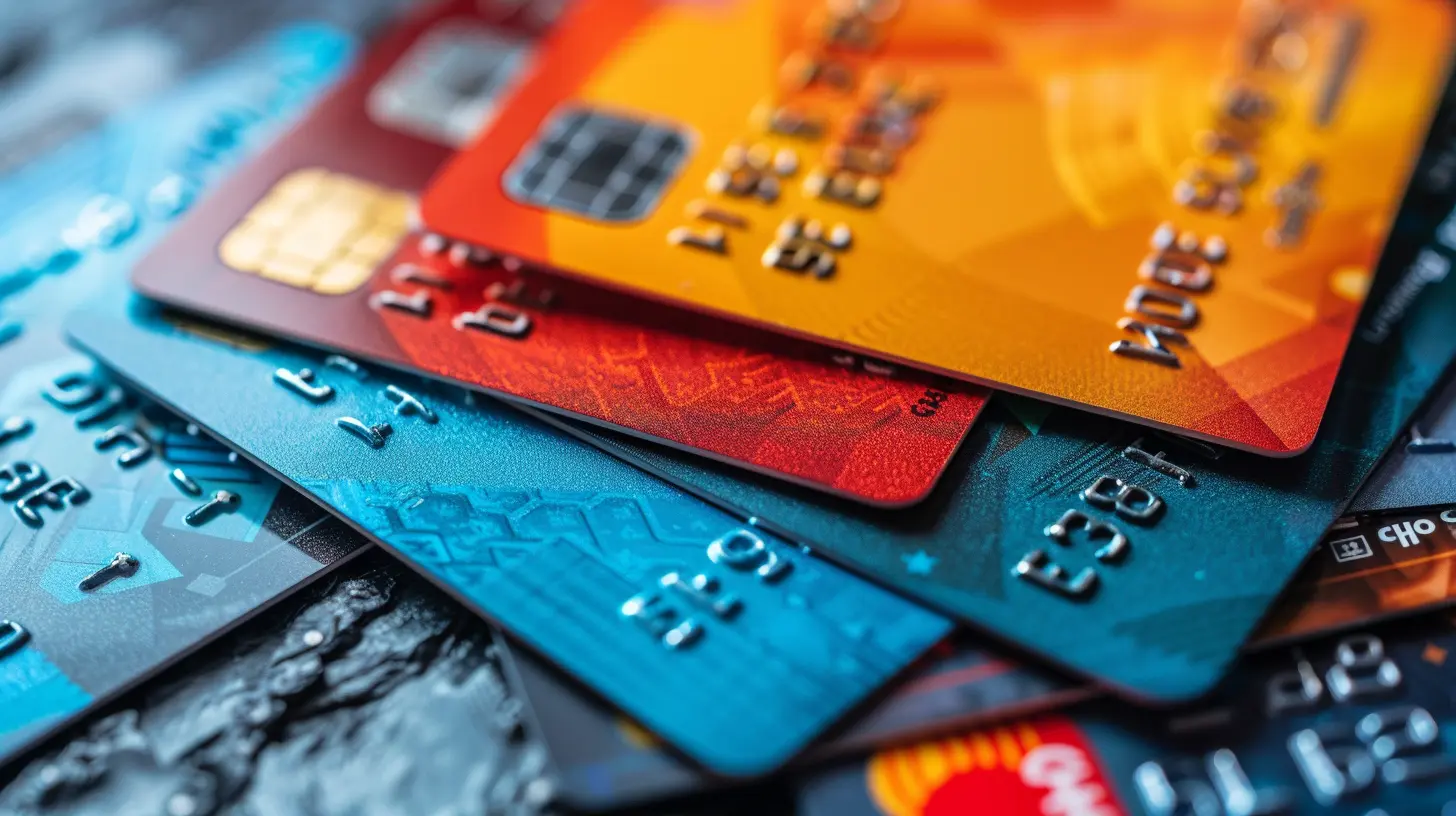The Long-Term Effects of Bankruptcy on Your Credit
30 April 2025
Bankruptcy—just the word alone can send shivers down your spine. It’s the financial equivalent of hitting rock bottom, waving the white flag, and saying, “Alright, I really screwed up.” But here’s the thing—it’s not the end of the world. Yes, bankruptcy torpedoes your credit score and stays on your record for years, but does that mean you’ll never recover? Absolutely not!
Let’s dive into the long-term effects of bankruptcy on your credit and how you can bounce back stronger than ever.

What Happens to Your Credit After Bankruptcy?
So, you’ve filed for bankruptcy. Whether it was a Chapter 7 or Chapter 13, it’s now on your credit report. But what does that actually mean?1. Your Credit Score Takes a Nosedive
Expect your credit score to drop significantly—typically by 130 to 240 points, depending on where it started. If you had a stellar score before filing, you’ll feel the pain more. Lower credit scores mean higher interest rates, difficulty getting approved for loans, and generally more financial headaches.2. It Sticks Around Like an Unwanted Guest
Bankruptcy doesn’t just disappear overnight—it stays on your credit report for:- Chapter 7: Up to 10 years
- Chapter 13: Up to 7 years
That’s a long time! But as time passes, its impact lessens, especially if you take steps to rebuild your credit.
3. Kiss Certain Credit Opportunities Goodbye (For Now)
Want a top-tier credit card with amazing perks? Forget about it—at least for a while. Lenders see bankruptcy as a red flag, making it harder to get approved for new credit. If you do get approved, expect sky-high interest rates and unfavorable terms.
How Bankruptcy Affects Your Future Financial Opportunities
Bankruptcy doesn’t just hurt your credit score—it affects almost every part of your financial life.1. Higher Interest Rates on Loans
Lenders now consider you a risk. If you’re approved for a loan (and that’s a big “if”), expect ridiculous interest rates. That dream home? It might take a while before you can qualify for a mortgage with decent terms.2. Trouble Renting a Home
Landlords love checking credit reports, and a bankruptcy mark makes you look like a risky tenant. While it won’t necessarily stop you from securing a lease, it could require a higher security deposit or a co-signer.3. Difficulty Getting Approved for Credit Cards
Most creditors will turn their noses up at your applications. But don’t panic! There are options like secured credit cards designed for rebuilding credit—just be prepared to put down a deposit.4. Some Jobs May Be Off Limits
Certain employers (especially in finance) check credit reports. A bankruptcy filing might raise red flags for roles involving money management. It’s not always a deal-breaker, but it can be an uphill battle.
Can You Rebuild Credit After Bankruptcy? Absolutely!
Feeling discouraged? Don’t. Bankruptcy isn’t a financial death sentence. Here’s how you can bounce back and rebuild your credit over time.1. Pay Your Bills on Time—Every. Single. Time.
Payment history makes up 35% of your credit score—it’s the biggest factor. Late payments after bankruptcy? That’s like digging a deeper hole after already hitting rock bottom. Set up autopay and never miss a due date.2. Get a Secured Credit Card
This is one of the fastest ways to rebuild credit. A secured credit card requires a deposit (which becomes your credit limit), but it helps prove to creditors that you’re responsible. Just make sure to use it wisely and pay it off in full each month.3. Keep Credit Utilization Low
Maxing out credit cards is a no-go. Aim to use less than 30% of your available credit—lower is even better. This shows lenders you’re not overextending yourself.4. Avoid Applying for Too Much Credit Too Soon
Every time you apply for credit, it triggers a hard inquiry, which temporarily lowers your score. Multiple applications in a short period? Big mistake—it makes you look desperate for money.5. Check Your Credit Reports Regularly
Errors on your credit report can tank your score even further. Use AnnualCreditReport.com to check for any mistakes and dispute them immediately.6. Become an Authorized User
Know someone with great credit? Ask to be added as an authorized user on their credit card. You don’t even have to use the card—you just benefit from their good credit habits.
Myths About Bankruptcy and Credit—Debunked!
Let’s clear up some common misconceptions about bankruptcy and your credit.1. “I’ll Never Get Credit Again”
False! Yes, it’ll be tough at first, but plenty of people rebuild their credit post-bankruptcy. Start small, prove your responsibility, and you’ll be back in business.2. “Bankruptcy Erases My Debt Forever”
Not exactly. While it wipes out many debts, certain ones—like student loans, child support, and some taxes—stick around.3. “I Should Avoid Credit After Bankruptcy”
Wrong! While you shouldn’t go on a reckless spending spree, avoiding credit entirely won’t help either. Responsible credit use is key to rebuilding your score.How Long Does It Take to Recover from Bankruptcy?
The timeline for bouncing back depends on your actions. Here’s a rough breakdown:- Year 1-2: Credit is still in rough shape, but making on-time payments and using secured credit helps.
- Year 3-5: Your score improves significantly as bankruptcy ages, and you may qualify for better credit cards or loans.
- Year 6-10: The bankruptcy drops off your report after 7-10 years. By then, you should be well on your way to financial recovery.
Final Thoughts: Bankruptcy Isn’t the End—It’s a New Beginning
Yes, bankruptcy has long-term effects on your credit, but guess what? It’s not permanent. With smart financial habits, patience, and a little elbow grease, you can rebuild your credit and regain financial stability.Filing for bankruptcy is like hitting the reset button—it’s painful, but sometimes necessary. What matters most is what you do next. So, chin up, put a solid recovery plan in place, and start working your way back to financial success.
all images in this post were generated using AI tools
Category:
Credit ScoreAuthor:

Zavier Larsen
Discussion
rate this article
8 comments
Jenna Brooks
This article offers invaluable insights into a challenging topic. Understanding the long-term effects of bankruptcy on credit can empower individuals to make informed decisions and pave the way for a brighter financial future. Remember, setbacks can be stepping stones to recovery and growth. Stay positive and proactive!
May 8, 2025 at 3:04 AM

Zavier Larsen
Thank you for your thoughtful comment! I'm glad you found the insights helpful. It's essential to stay informed and optimistic during challenging times.
Barrett McHugh
Every setback is a setup for a comeback. Learn, rebuild, and shine brighter in your financial journey ahead!
May 6, 2025 at 10:24 AM

Zavier Larsen
Thank you for your inspiring words! Indeed, resilience and learning from setbacks are crucial in overcoming financial challenges.
Soraya Lambert
Understanding long-term impacts is crucial for recovery.
May 6, 2025 at 4:39 AM

Zavier Larsen
Absolutely! Long-term impacts shape financial health and recovery strategies.
June Hall
Delve into the shadows of your financial future—bankruptcy's lingering touch on credit can redefine your path. Are you prepared for the hidden consequences lurking ahead?
May 5, 2025 at 8:12 PM

Zavier Larsen
Absolutely, understanding the long-term impacts of bankruptcy is crucial. It’s essential to be aware of how it can influence your credit and shape your financial journey.
Derek Bass
Bankruptcy can severely impact your credit for years, making it crucial to understand its long-term effects before filing.
May 4, 2025 at 12:02 PM

Zavier Larsen
Absolutely, understanding the long-term effects of bankruptcy is essential, as it can hinder your credit for up to 10 years. Being informed helps you make better financial decisions.
Astralis Soto
Thank you for this insightful article! Understanding the long-term effects of bankruptcy on credit is crucial for anyone facing financial challenges. Your clear explanations empower readers to make informed decisions and pave the way for a brighter financial future.
May 2, 2025 at 1:03 PM

Zavier Larsen
Thank you for your kind words! I'm glad you found the article helpful in navigating such an important topic.
Anna Lane
Bankruptcy significantly impacts your credit score, often reducing it by 200-300 points. It can take seven to ten years for the effects to diminish, affecting future financial opportunities.
April 30, 2025 at 11:07 AM

Zavier Larsen
Thank you for your comment! You're right—bankruptcy has a profound impact on credit scores and can hinder financial opportunities for years.
Nellie Morgan
Great insights! Recovery is always possible!
April 30, 2025 at 4:15 AM

Zavier Larsen
Thank you! Absolutely, with the right steps, recovery is achievable!





